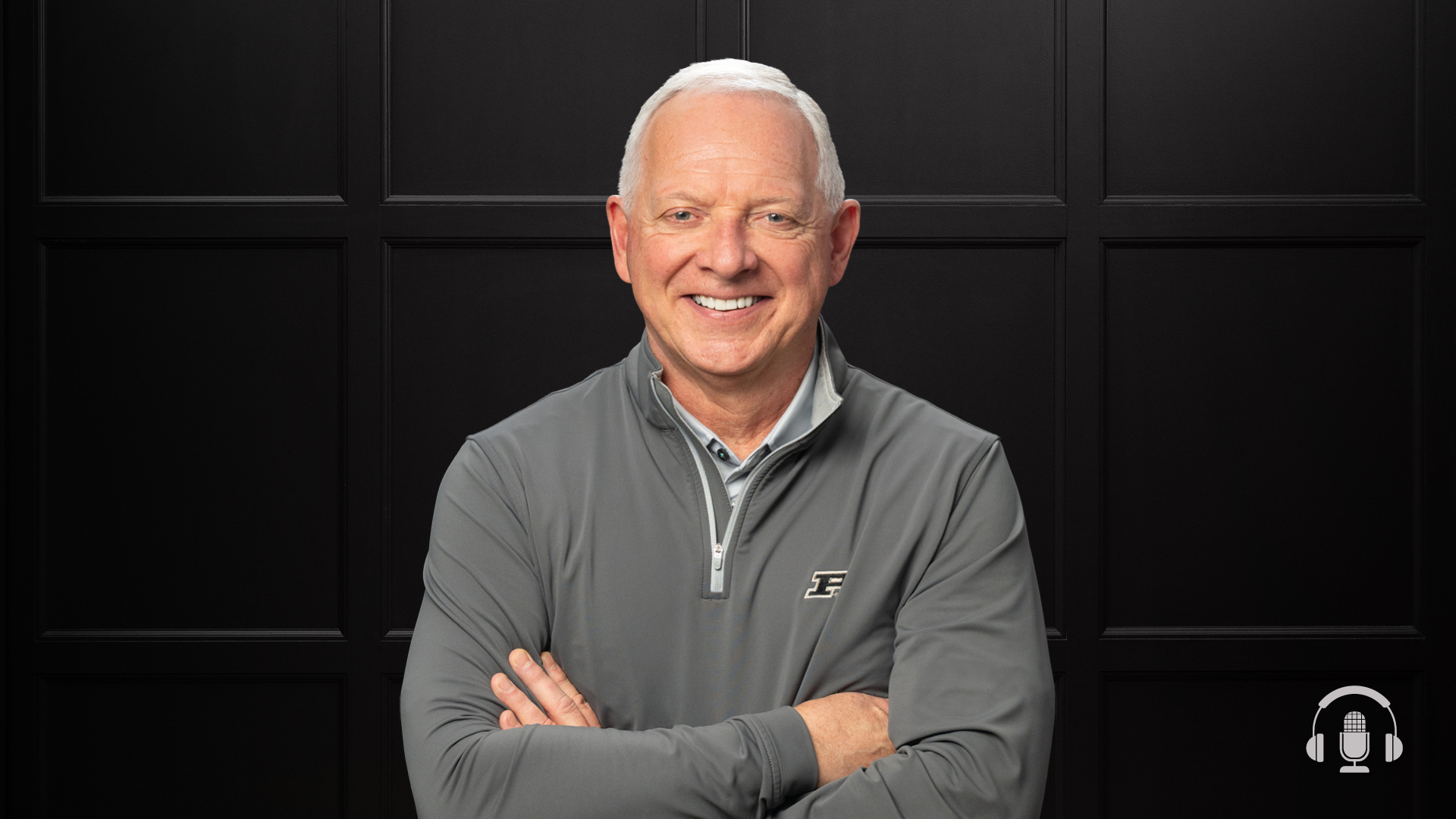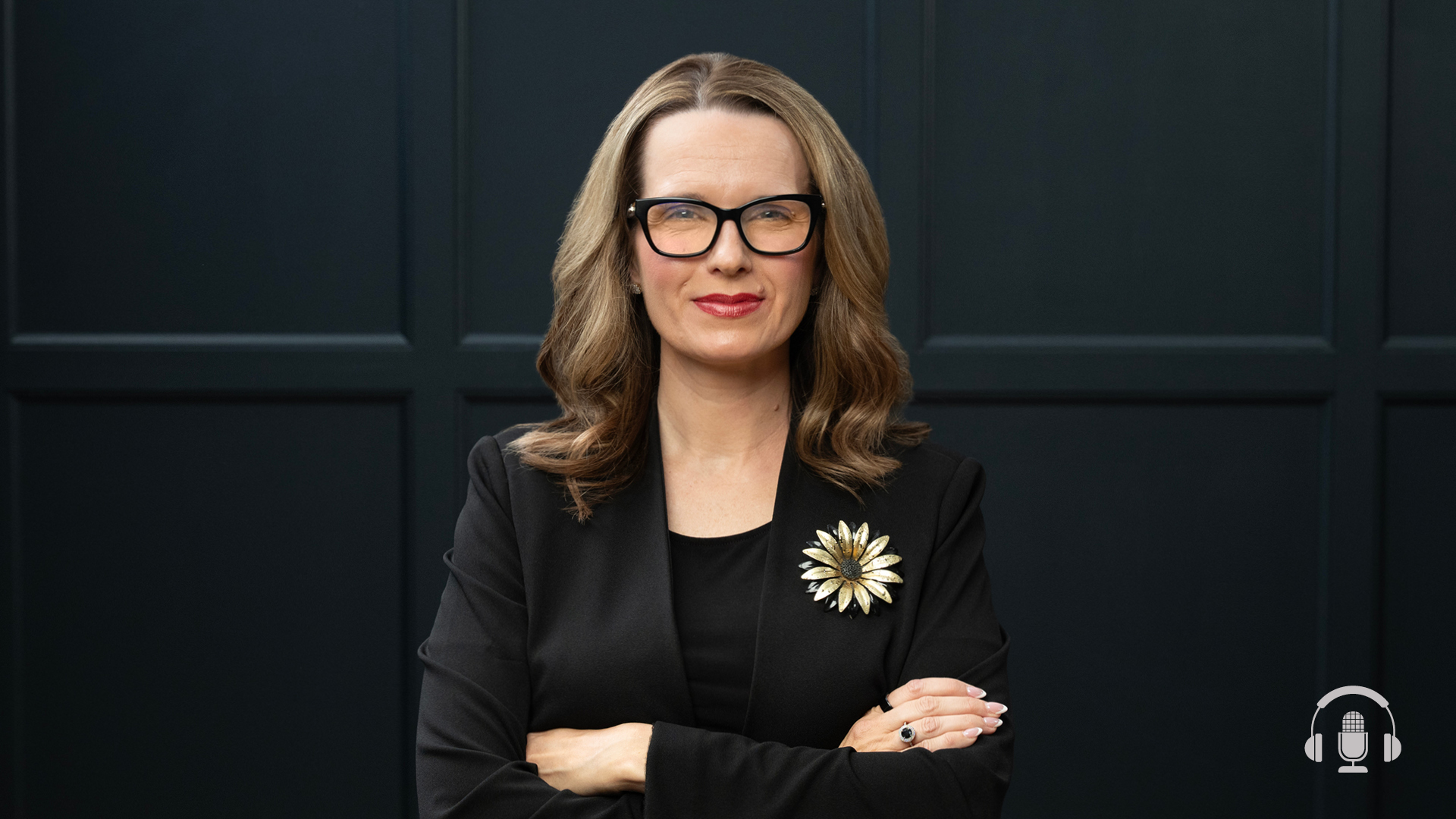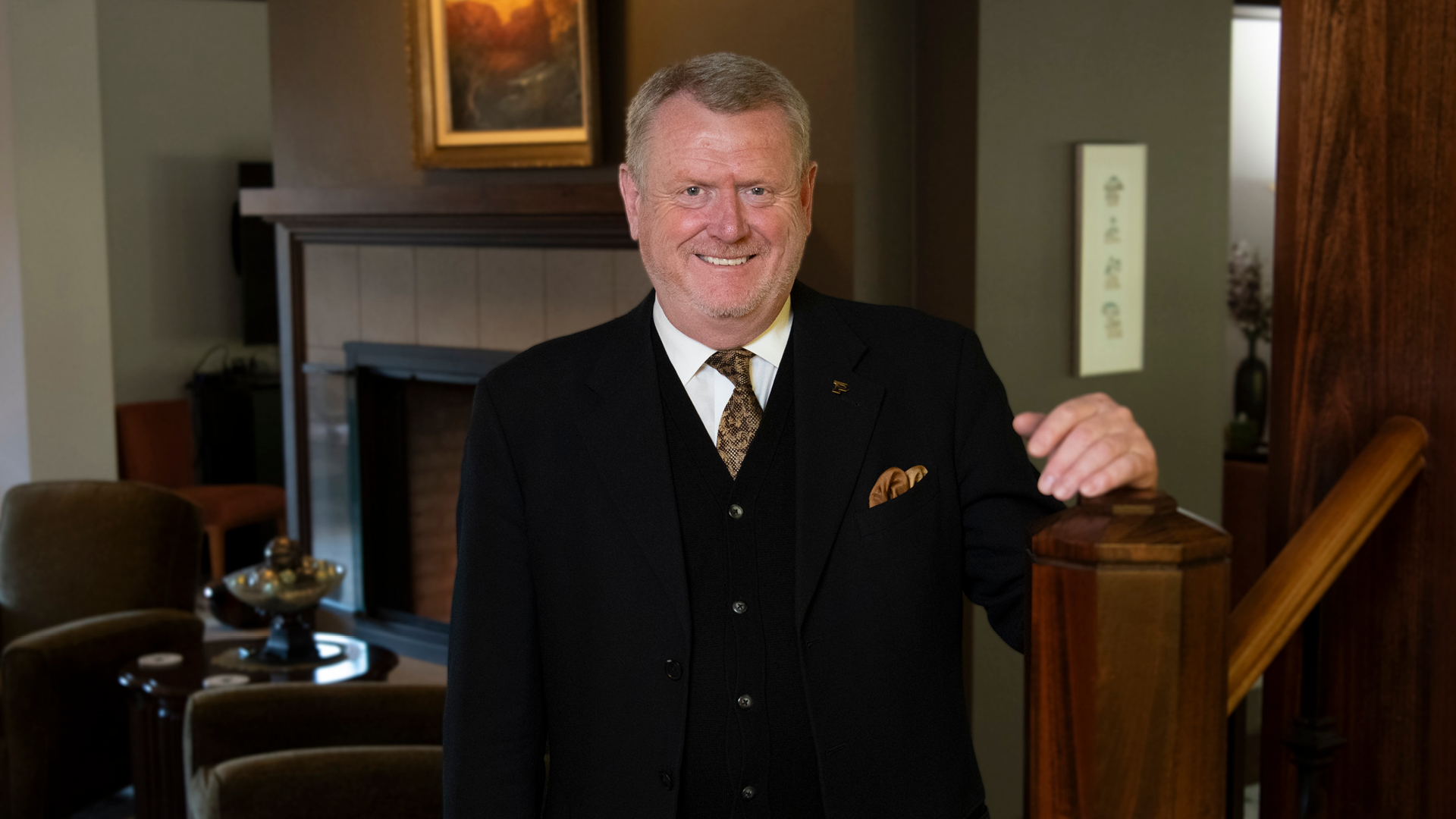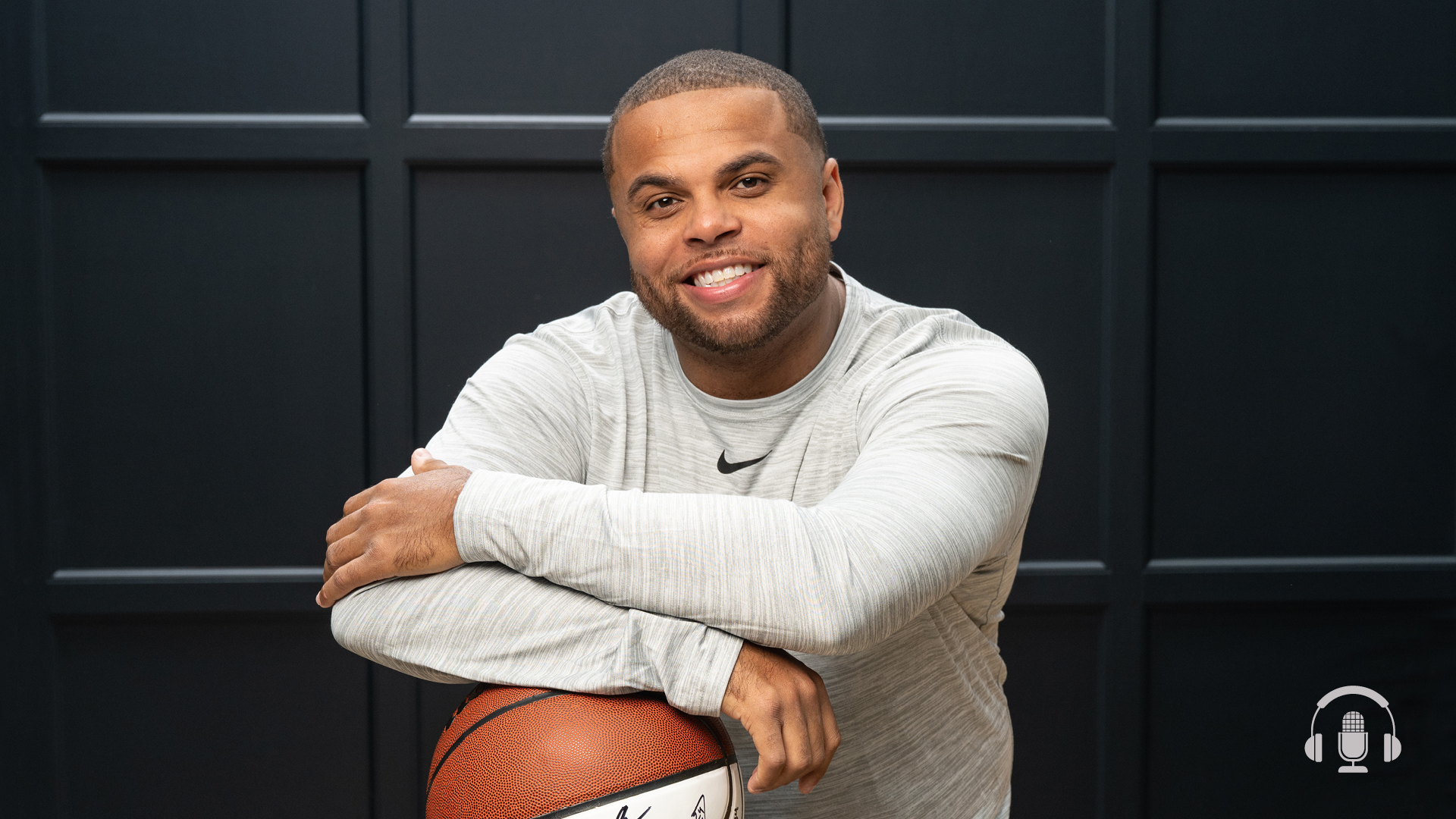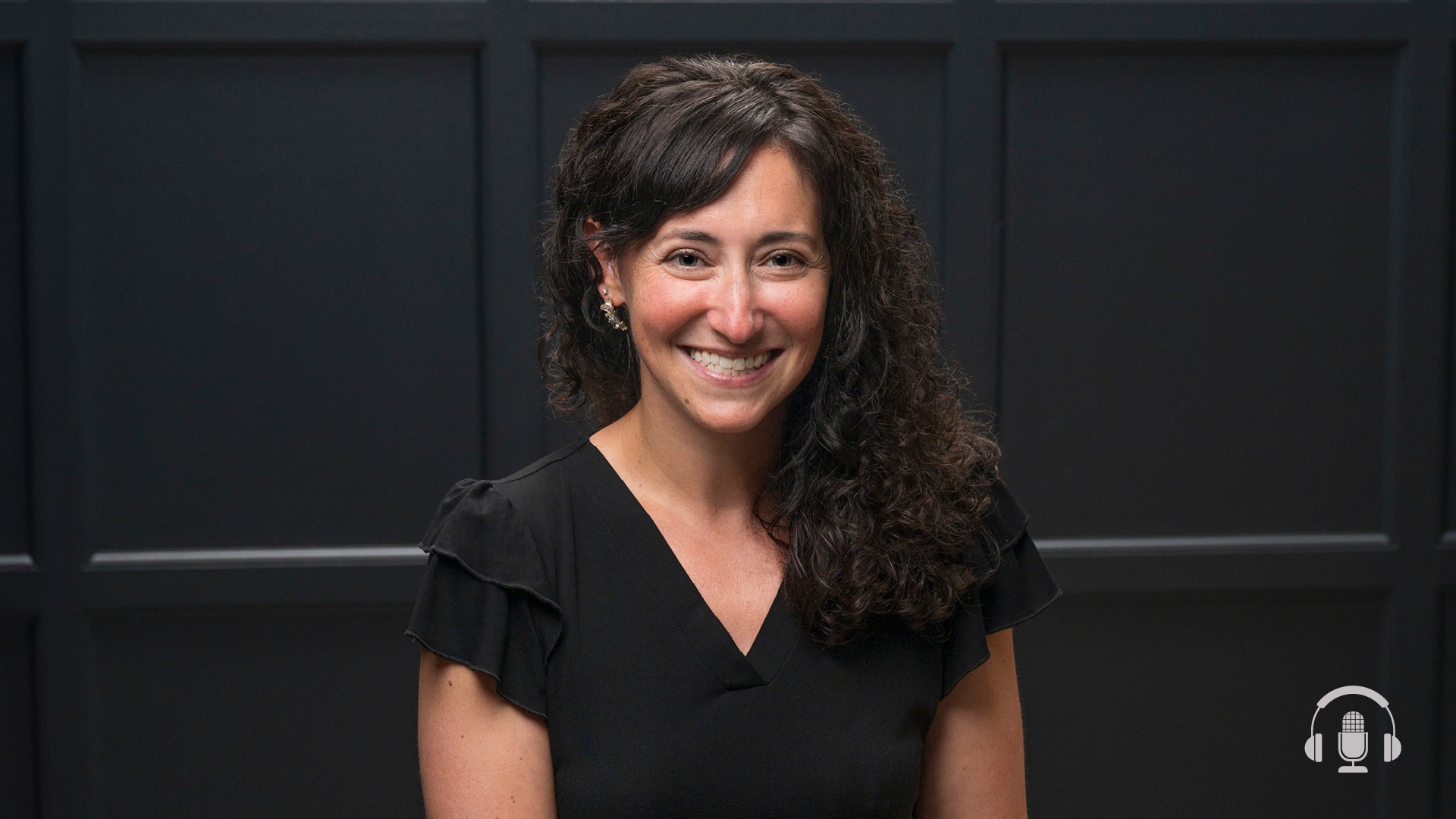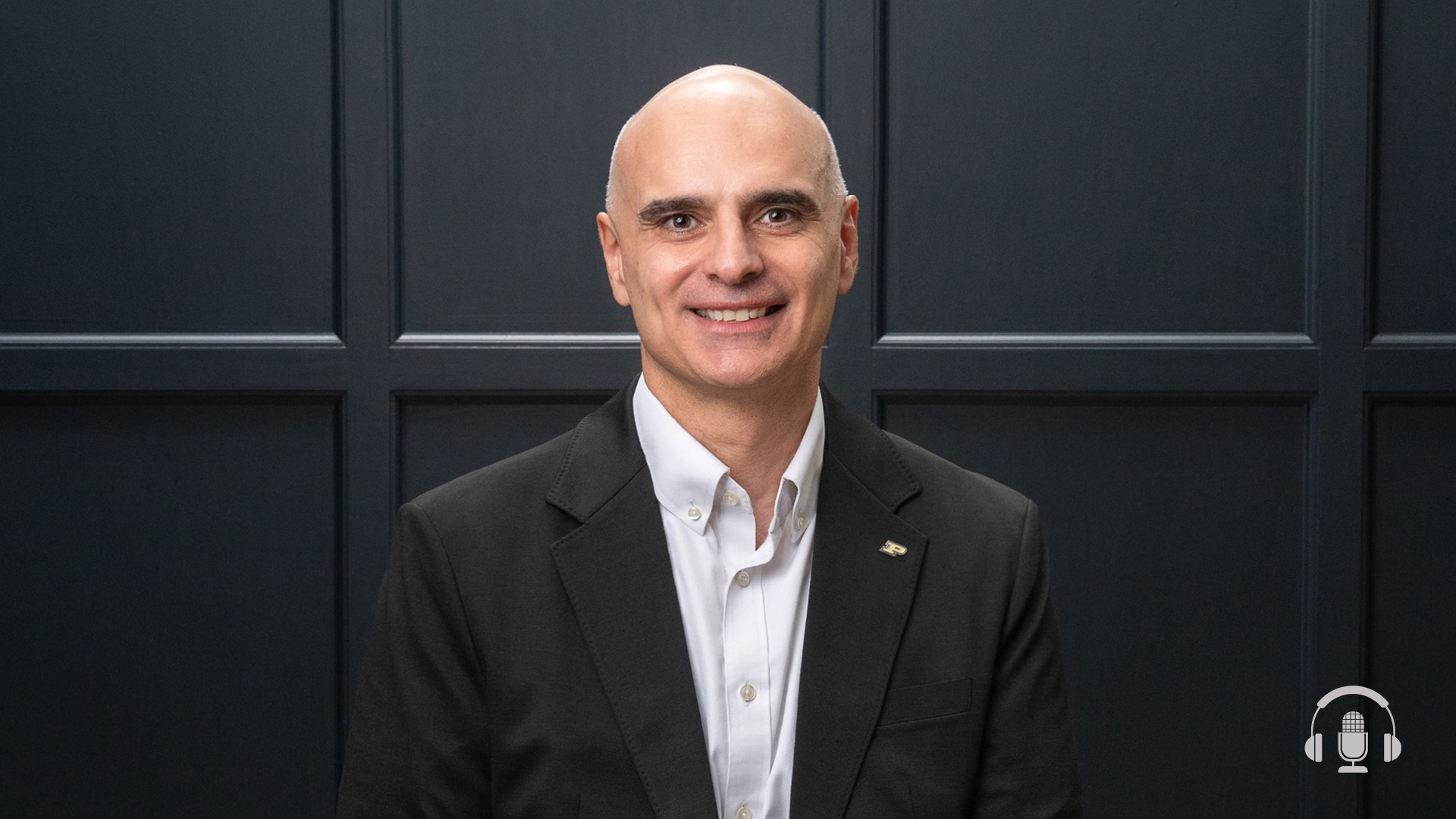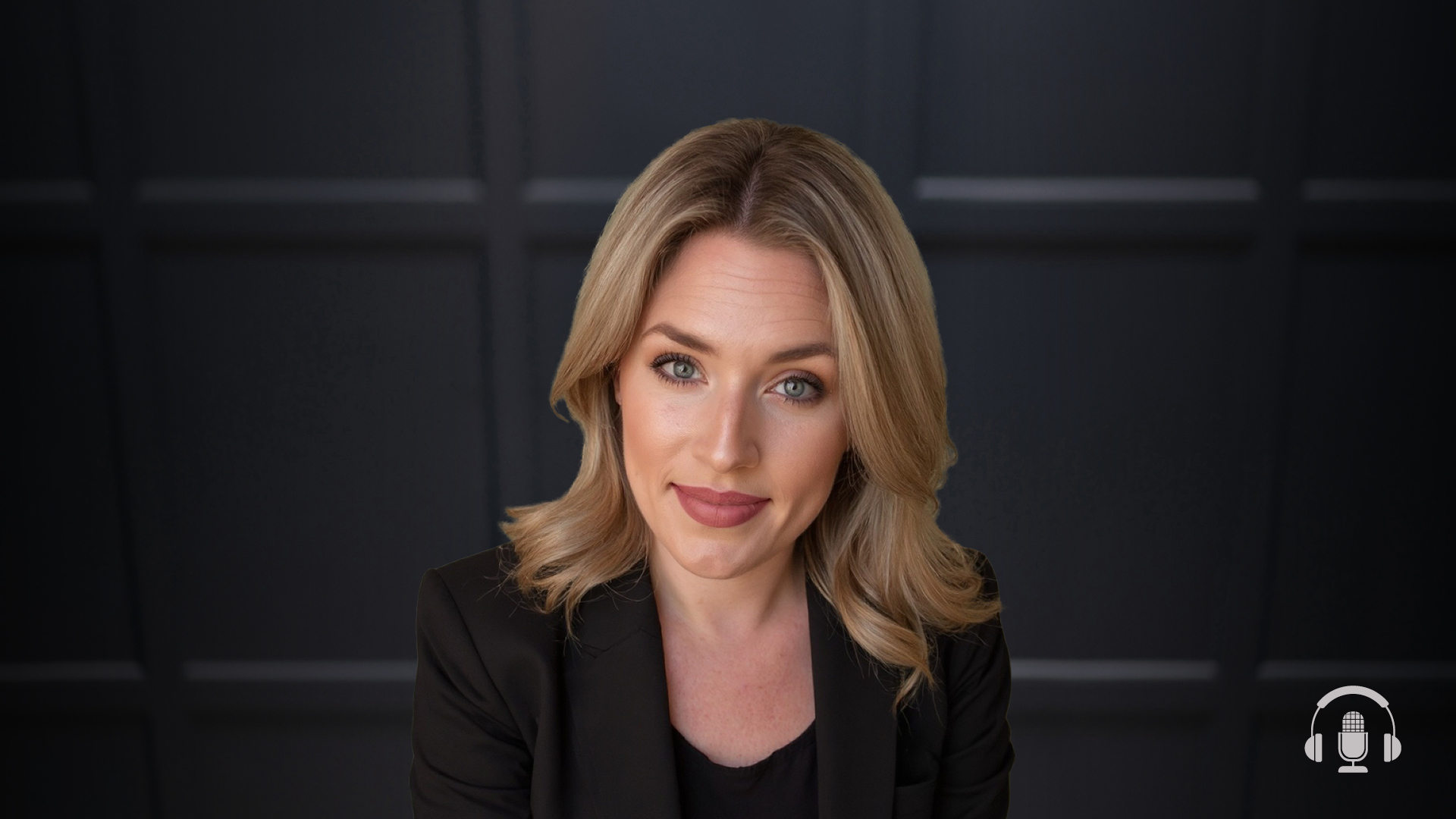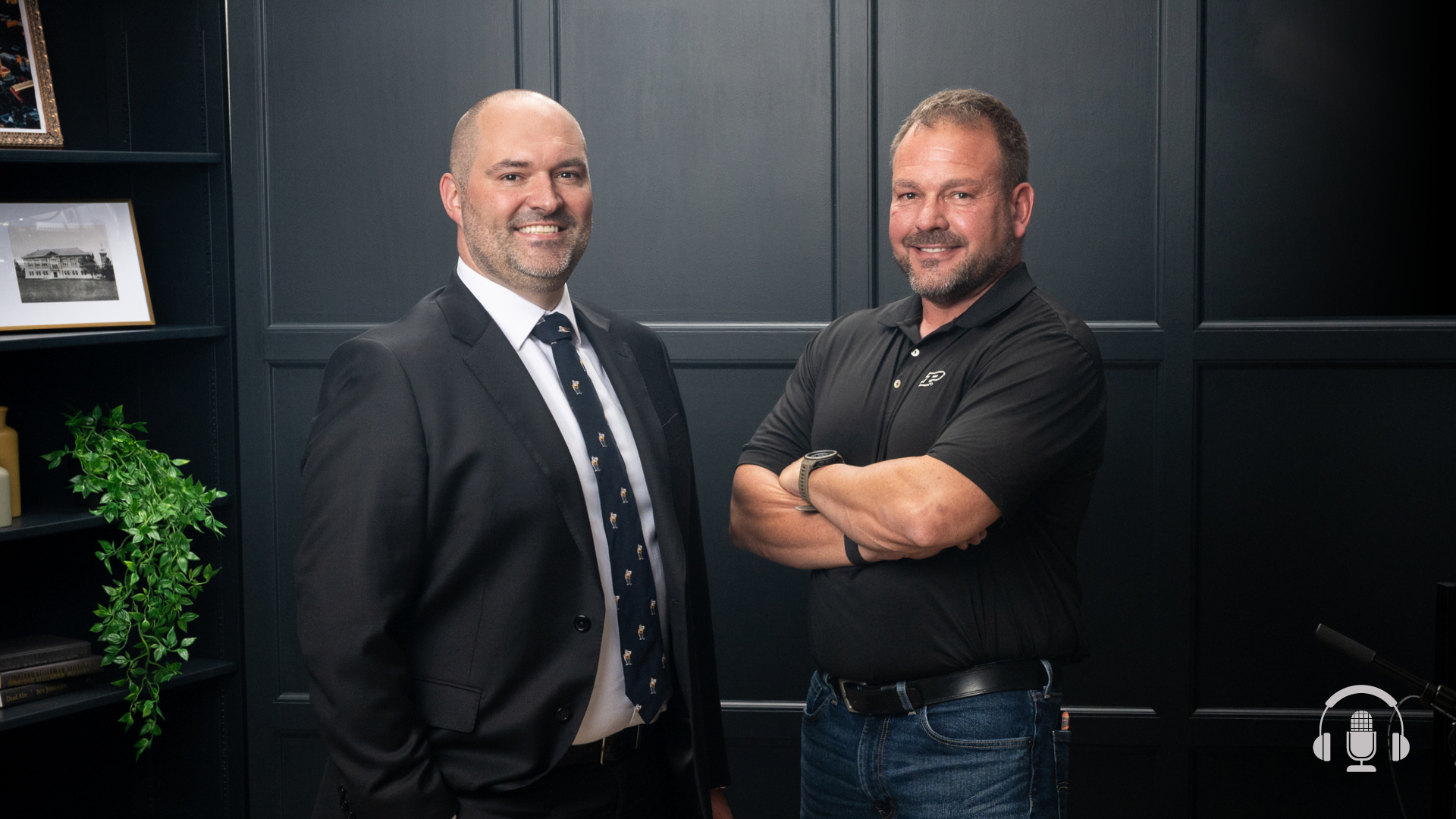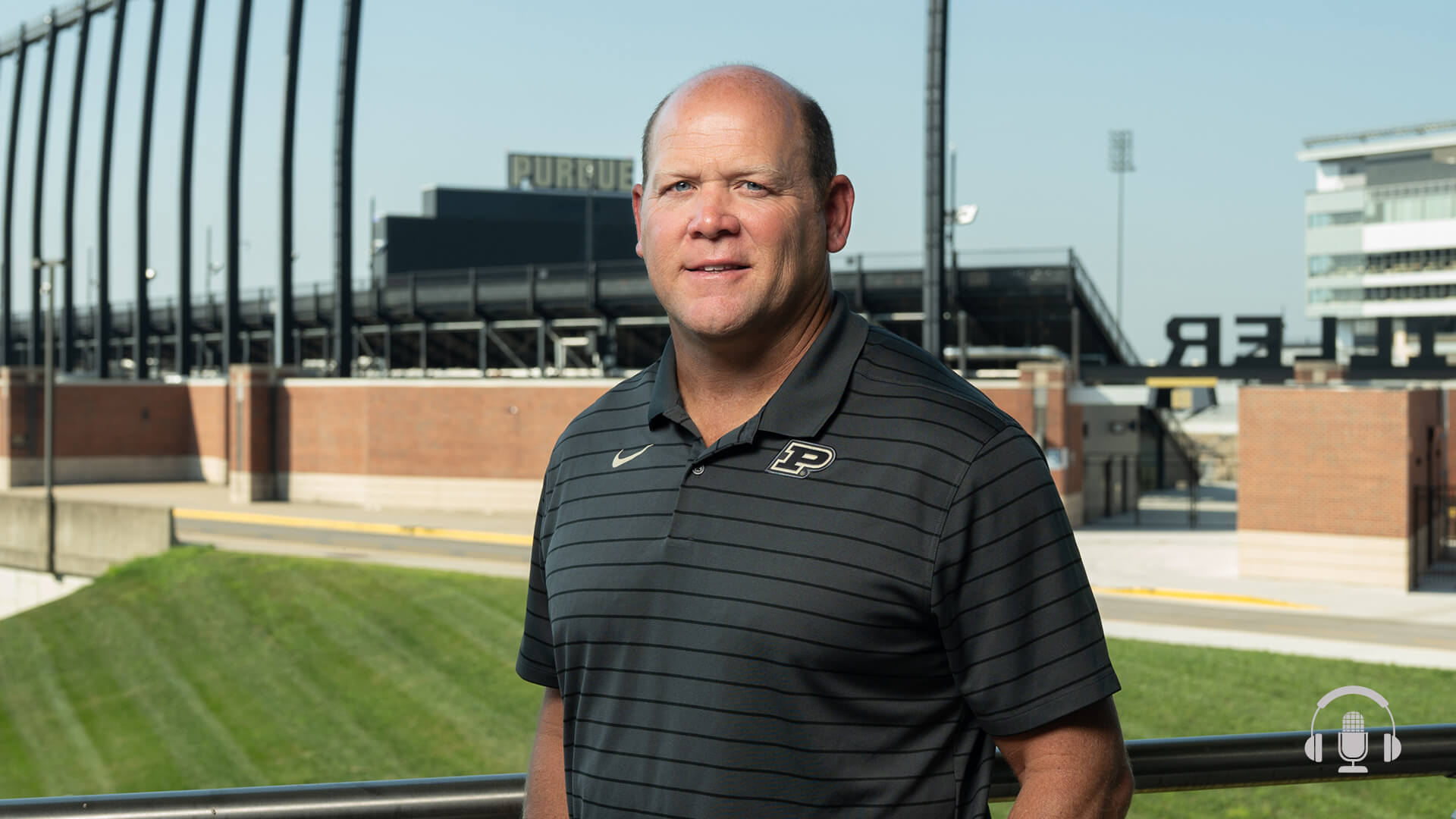Podcast Ep. 110: Dean, Mentor, Boilermaker: Celebrating Willie Reed and His Lasting Legacy on the Purdue University College of Veterinary Medicine
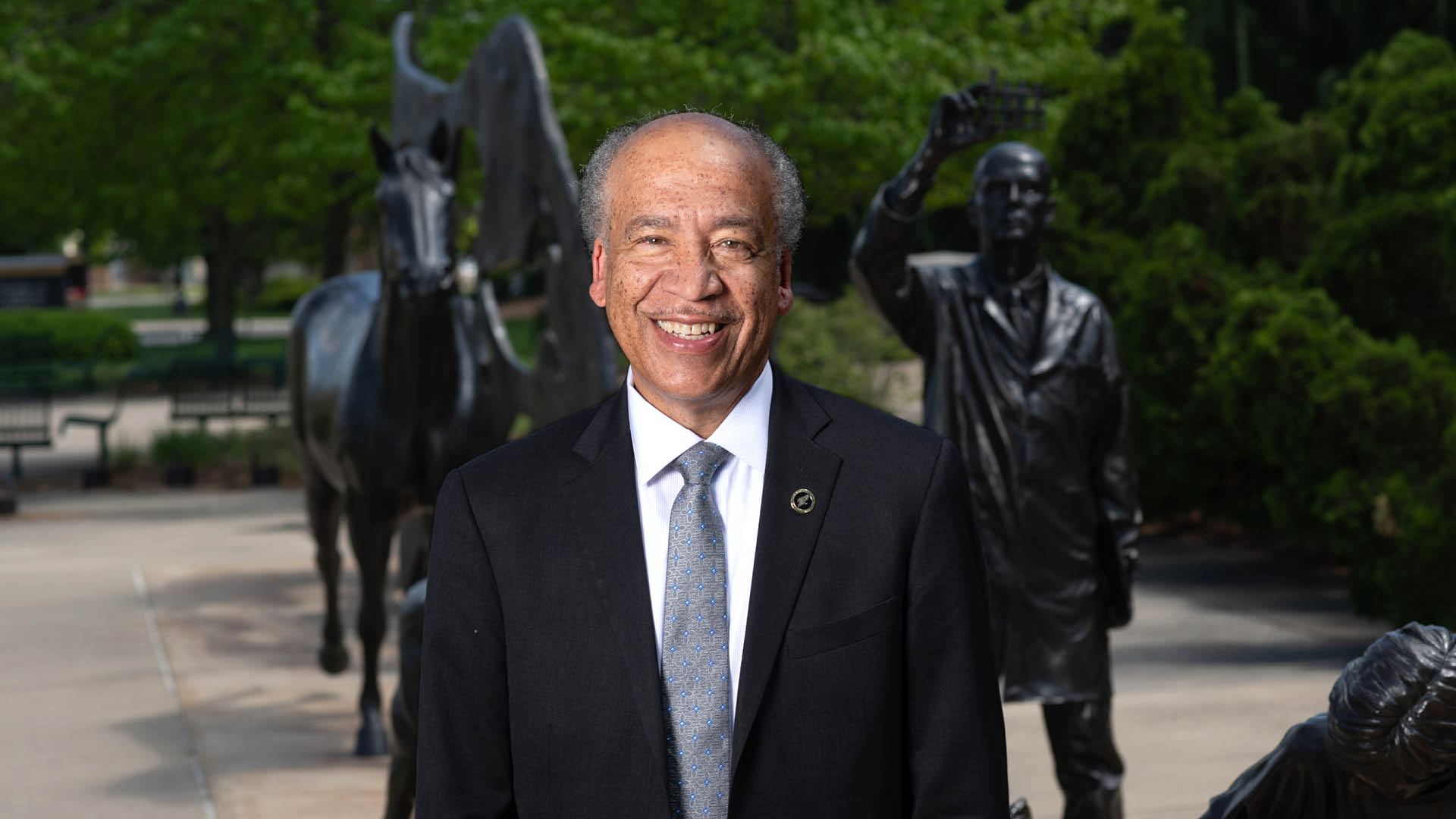
In this episode of “This Is Purdue,” we’re talking to Willie Reed, dean of Purdue University’s College of Veterinary Medicine.
Join us as we celebrate Reed’s legacy as he prepares to step down after 17 years as dean. When you listen to this episode, you can expect to:
- Learn more about Dean Reed’s incredible journey of persistence — from being taught first grade by his grandmother in southern Alabama to becoming dean of one of the top veterinary schools in the country.
- Discover what led Dean Reed to pursue a career as a veterinarian as he discusses his love for animals and current pathology research happening at Purdue.
- Explore Purdue’s research on the human-animal bond and how animals have a positive effect on human mental and physical health.
- Take a closer look at how Dean Reed’s efforts have met the increasing demand for veterinary professionals by expanding and adapting the College of Veterinary Medicine’s world-class facilities.
- Find out about Dean Reed’s future endeavors, including mentoring students in underrepresented communities to teach them the path to becoming a veterinarian.
“There’s something about the Purdue spirit that is unique,” Dean Reed says. “When you come here, this is a place where dreams can come true.”
Don’t miss this episode celebrating the legacy of a Purdue icon who has dedicated his career to positively impacting the lives of animals, students and the entire Boilermaker community.
- Learn more about Dean Willie Reed
- Learn more about the Purdue University College of Veterinary Medicine
- Learn more about Purdue’s graduate program in pathology
- Learn more about current research in the College of Veterinary Medicine
Full Podcast Episode Transcript
Willie Reed:
This is Dean Reed and you’re listening to, “This Is Purdue.”
Kate Young:
Hi. I’m Kate Young and you are listening to This Is Purdue, the official podcast for Purdue University. As a Purdue alum and Indiana native, I know firsthand about the family of students and professors who are in it together, persistently pursuing and relentlessly rethinking. Who are the next game changers, difference makers, ceiling breakers, innovators? Who are these Boilermakers? Join me as we feature students, faculty, and alumni taking small steps toward their giant leaps and inspiring others to do the same.
Willie Reed:
This is a place where dreams can come true. I had a dream and I tell them, I said, “You got to believe in the beauty of your dream and don’t let anybody deter you from that. Be persistent.” So when we admit a veterinary class, I call every applicant that we want to make an offer to. I personally call them. It takes two or three days to get them all, but those are two or three of the happiest days of my year because every call represents a dream that’s about to come true.
Kate Young:
In this episode of “This Is Purdue,” we’re talking to Willie Reed, dean of Purdue University’s College of Veterinary Medicine. We’re not only talking to Dean Reed today, we’re also celebrating his legacy as a proud Boilermaker as he prepares to step down from his role as dean after 17 years.
His pioneering leadership at Purdue has impacted so many people and animals throughout the years. In this episode, you’ll learn more about Dean Reed’s incredible journey of persistence from being taught first grade on his front porch by his grandmother to earning a Purdue doctorate in pathology to becoming dean of one of the top veterinary schools in the country.
But first, we’ll start at the beginning and dive into what led Dean Reed to pursue a career in veterinary medicine. Dean Reed, thank you so much for joining us today on This Is Purdue. We’re so excited to get into your Boilermaker journey, this junior stepping down after 25 years at the university. But we’re excited to hear more about your accomplishments and everything that you’ve done as dean for the past 17 years. We’ll start at the beginning. I want to note, have you always wanted to be a veterinarian? Where does your passion and love for this come from?
Willie Reed:
Well, I’m happy to be part of this today, and the process started for me in my little town in southern Alabama. I grew up around all kinds of animals and I had loved animals. I love science and I love mathematics. But as a very young child, veterinary medicine wasn’t really on my radar screen until probably high school, although my father would mention veterinary medicine many times to me and suggested that veterinary medicine would be something that I should pursue because I think he had a fondness for veterinary medicine, but the time and era where he grew up just didn’t lend itself to pursuing that dream.
So I started thinking more and more about veterinary medicine and then I had a vocational agriculture teacher who really encouraged me to look into veterinary medicine and I thought, “Yes, that’s something that I want to do. It would allow me to combine my love for animals, my love for science and my interest in medicine.” And it was about the 10th or 11th grade.
Kate Young:
Wow. So you’ve been wanting to pursue this and have been interested in this for a while?
Willie Reed:
Yes. It became a dream.
Kate Young:
After receiving his bachelor’s degree in animal and poultry science and his DVM degree from Tuskegee University, Dean Reed came to Purdue and earned his PhD in pathology in 1982. He says he came to Purdue largely because of its prominent infectious disease program, specifically in swine. So while he was studying here at Purdue, he had the opportunity to conduct research with highly regarded veterinary pathologists to study intestinal diseases in pigs.
He knew this was an area where he could truly make an impact. Dean Reed explains more about why diagnostic pathologists are incredibly important in veterinary medicine and he digs further into his childhood and education path, which was greatly influenced by his family and their incredible support system.
Willie Reed:
Well, as I said, the dream was to become a veterinarian and I thought that I would finish veterinary school, return to my little hometown, and I would be the second veterinarian in the county where I grew up. So that was the plan. That was a dream. And it was the second year in veterinary school where I took the course called Pathology of Domestic Animals. During that year, I developed a fondness for pathology. And pathology is the study of the causes of diseases and how the body responds to injury. And so I thought, “Wow, this is an interesting field.” And so I thought I needed to find out more information about pathology.
That summer after the second year of veterinary school, I actually had an opportunity to work in a medical school, University of Alabama Birmingham. Top-notch medical school. I worked in the Department of Comparative Pathology and we studied the Pathology of Laboratory Animals. And after that summer, I thought, “Well, this is interesting. I think I may want to pursue this. So I completed my third year of veterinary school, decided I needed another opportunity, and I had a chance to do an internship for a large pharmaceutical company in Michigan.
So I spent this summer there learning the role that pathologists play in drug discovery and drug development. And then after that summer I was sold on pathology.
Kate Young:
Not many people can say they studied out of college and then later became the dean. So take us back to 2006 when you were offered the dean of Purdue’s College of Veterinary Medicine, what were you feeling? Had you always wanted to be a dean at a school?
Willie Reed:
Becoming Dean of a College of Veterinary Medicine was not in my game plan. It just happened. So back to that internship in Michigan as well, a junior veterinary student, I met a Purdue graduate and he learned about my strong interest in pathology and he had obtained his PhD in pathology from Purdue and convinced me that this was the best place in the world to study pathology. And that summer I interacted with Michigan State graduates and a couple of Purdue graduates and the Purdue graduates won out. They convinced me to take a look at Purdue and I came down here and interacted with the faculty and the people, and had a fabulous visit, and went back to veterinary school, and finished my fourth year and decided, “I want to study pathology and I want to go to Purdue.”
So I applied to Purdue and a few other places, but decided that I would come here and I came here because of the people. There were wonderful, wonderful people. And the Purdue graduate had a wonderful experience here and convinced me to come. And so I came two weeks after graduating from veterinary school. I was starting a PhD in pathology. Looking forward to another four years of training. So after my undergraduate training and then four years of vet school, I was ready for four more years.
Kate Young:
Lots of schooling.
Willie Reed:
Lots of schooling. When I arrived in the summer of 1978, I had no idea what was ahead of me. Little did I think many years later that I would be dean of the College of Veterinary Medicine at Purdue University. Why didn’t I think that? Well, where I grew up, there were no role models like that. I never thought that I would be able to achieve such a wonderful achievement. And so it was surreal. I came back to Purdue in 2006 after being here for 12 years before I left and came back to think that I would come back as dean of the College of Veterinary Medicine.
So it was a great professional honor because at that time there were only about 30 colleges of veterinary medicine. So think about that. In the whole country, United States of America, only 30 jobs, and I was at one of those. And to lead one of America’s great veterinary colleges is a privilege beyond description.
Kate Young:
You’ve said that as a Black vet student, you just touched on that now. You had to overcome a lot of adversity, but your grandmother, your mother, it sounds like your father were always loving, supporting, encouraging you. How has that made a difference on your path and then moving forward as dean, how have you been able to pass that along to students?
Willie Reed:
Yeah. That had a big impact on how I have approached every job that I’ve had. I grew up in a time and a place where dreams were just dreams with little chance of coming true. I mean, I grew up during the time of, well, when schools were segregated. They were trying to desegregate them. I was denied access to schools. My father was very instrumental in encouraging me to don’t give up.
My grandmother who actually taught me first grade on the front porch of our home, because first grade for me lasted one week. There’s an attempt to desegregate my school. I was a little happy, a six-year-old, not knowing what was going on. And all I knew is school was fun that week and I was happy getting up, going to interact with my classmates, and school just stopped. So during that year when my parents, my mother and my father were filing lawsuits, trying to get me back into school, my grandmother taught me first grade.
I guess I was being homeschooled and didn’t even know it. I’m not even sure we used that terminology back in those days, but I felt I was one of the lucky ones. I had an opportunity to go to school with some very talented people who had dreams too, but for many reasons, they didn’t make it the way that I did. And the difference for me was, I think was I had tremendous support from my parents and for many people in my community. I felt like everybody was pulling for me. Everybody wanted to see me succeed because in my community where I grew up, no one had ever pursued veterinary medicine to my knowledge.
No one had ever pursued human medicine, certainly no professional training that I was aware of. So I was lucky to have such support to be able to achieve what I was able to achieve, but it was with a lot of support.
Kate Young:
How has that impacted you as a dean to be able to support your students now?
Willie Reed:
Since I had so much support, I knew that there was no way that I could ever pay back my parents or pay back others who supported me. The only thing I could do was to pass it on to help others achieve their dreams because I found that nothing is more rewarding, at least for me, to see someone else pursue their dreams. So I’ve encountered many young people who want to pursue things and they never had role models. They don’t have the support that they need to be successful. So I thought, “Well, maybe I can make a small difference.” And that’s what I’ve tried to do. So my background and my experiences really have guided me on everything that I have done as dean and in life in general.
Kate Young:
I think you’ve made a big difference, not just a small difference. One of Dean Reed’s first acts as dean was to establish two new offices, the Office of Engagement and the Office for Diversity, Equity and Inclusion. These offices have generated educational initiatives for elementary students and scholarships in on-campus learning experiences with the aim of encouraging diversity and fostering a welcoming culture for all. Dean Reed shares why this was important to him and what benefits the veterinary college has seen from the creation of these offices.
Willie Reed:
I thought that it was very important that our college really connect well with stakeholders. And many stakeholders here in Indiana produce a land-grant institution. I believe deeply in that land-grant mission. And so the Office of Engagement allowed us to reach out to elementary kids, high school kids to encourage them to study science, to learn science, and maybe to even consider veterinary medicine sometimes. We’ve done that. We’ve written children’s books. We’ve gotten extramural funding. We’ve provided all kinds of opportunities for young people to learn science and to see how it can be fun learning it.
And then we wanted to engage populations that traditionally have been underserved because veterinary medicine needs to be more diverse. It has the dubious distinction of being the least diverse of all the veterinary professions. And I wanted to change that. We started the Office of Diversity, Equity, and Inclusion, and that office has worked really hard to make our college welcome for everybody, to include everybody, to include a diversity, certainly diversity in all the dimensions that we typically think of, but diversity in thought, diversity in opinion, diversity in interest, all of that, and to provide an environment where everybody can reach their full potential.
So it was important to establish the Office of Engagement, the Office of Diversity, Equity, and Inclusion. Also I greatly expanded our International Programs Office because I felt that our students needed to be culturally competent. So we set the lofty goal of providing a hundred percent of our students with an international experience if they want it. It’s not required. Because I felt strongly that our students needed to see veterinary medicine practice around the world, but probably more importantly, they needed to interact with cultures from around the world because our country is a very diverse country, and just about every aspect of veterinary medicine that they would pursue, they would interact with people from all over the world and all different belief systems.
And so I wanted them to be culturally competent because we’re trying to prepare them for 30, maybe 40, 50-year careers. And all of these things were to give them the tools to be successful.
Kate Young:
In 2022, Dean Reed’s strategic planning initiatives led to the opening of the new David and Bonnie Brunner Purdue, Veterinary Medical Hospital Complex. Dean Reed tells us more about this expansion and the new facilities and how this all has enabled the college to further grow its hospital services and clinical trials research.
Willie Reed:
The College of Veterinary Medicine at Purdue admitted the first class in 1959. So if you look at most of the veterinary schools in the country, Purdue is sort of middle age. Some of the older ones are over a hundred years old. And so as I studied the college before I came and shortly after I came, I thought we needed to address facilities. We had grown new programs and we didn’t have space to fully accommodate those new programs. New services needed to be offered through our hospital. We were going to meet the needs of the clientele and also provide the learning experiences for our students that we needed to provide.
So it was time for an expansion of facilities. And so the expansion of facilities allowed us to increase our enrollment because as population, US population is growing, the pet population is growing, the livestock populations are growing, so we need to produce more veterinarians to address all those needs. And we couldn’t do that without expanding the facilities. It’s a wonderful new facility that allows us to offer the state-of-the-art medical care for the animal populations here in Indiana.
Kate Young:
What do you think that means, not only to Purdue, but also to the greater community?
Willie Reed:
Well, this is a wonderful resource for our community, certainly in the greater Lafayette area, to have a tertiary animal hospital where we have all kinds of specialists to address almost any healthcare need the animal would have. And it’s a real special facility. In fact, it’s special for the whole state of Indiana. There are only 33 vet schools in the US currently accredited colleges, and still many states do not have a college of veterinary medicine. So it’s a wonderful resource for Indiana residents.
Kate Young:
A lot of people in the Purdue community have brought their pet here or their animal here, myself included. How does it feel knowing that this college has made a positive impact on students, the Purdue community, but also like you said, the whole state of Indiana?
Willie Reed:
Well, knowing that we have a positive impact brings a lot of personal satisfaction to me. I can tell you how many times that I’m maybe in the grocery store or I’m waiting to have my car serviced, and somebody will come up and say, “Hey, I used your emergency service yesterday or last week.” And I always ask, “Well, how did it turn out?” And fortunately, nearly all the time they say it turned out very well, and they’re so thankful that they had service here and they could utilize it. So it brings me a lot of personal joy and satisfaction to know that our services are valued and that people really appreciate having them here.
Kate Young:
Purdue’s College of Veterinary Medicine is ranked 11th in the country and is one of the few schools in the nation to educate all members of the veterinary healthcare team. From veterinary nurses to doctors of veterinary medicine, to specialists in disciplines such as orthopedic surgery, internal medicine, oncology, and cardiology. Dean Reed shares more on how Purdue is unique from other institutions.
Willie Reed:
Educating the veterinary healthcare team is a major focus of our college. And the healthcare team consists of the doctor of veterinary medicine, the veterinary nurse and veterinary specialists, so we can cover all aspects of care. And our veterinary students train alongside veterinary nursing students, so they learn how to work as a team. They learn how to tackle very complex medical problems. Our DVM doctor of veterinary medicine graduates should know how to fully utilize veterinary nurses. And veterinary nurses should know how to work with doctors of veterinary medicine. So this is very unique here at Purdue to have that. And there are only three other veterinary schools that would also have an embedded veterinary nursing program that could claim that they are also training the veterinary team.
Kate Young:
And speaking of doctors of veterinary medicine, during Dean Reed’s time as dean, he increased the DVM class size by 20%. What does he attribute this growth to?
Willie Reed:
I guess a couple things. And at the time when we increased it, we were reading a crystal ball. We had to look into our crystal ball and determine, “Okay. What would the workforce look like in four years or five years, or six years?” Because the day you decide to increase enrollment in a college of veterinary medicine, you don’t see the results for four or five years. You hope that there’s a need. And there is a need now. In fact, we need to increase enrollment again. And why? That’s because the animal populations are increasing. More people are seeking veterinary services than ever before, and there’s tremendous interest in the profession.
The number of applicants to our program has increased over a hundred percent in the last four, five years. So there’s lots of interests. Lots of young people want to pursue veterinary medicine, and fortunately, there’s a huge need for more veterinarians, particularly in some of the rural areas of our state and in fact, throughout the country, finding a veterinarian to treat animals in rural America is increasingly a challenge.
Kate Young:
So we know Purdue is unique from other institutions because of the way we educate all members of the veterinary healthcare team. But how does work and research being done here at Purdue impact the world?
Willie Reed:
Our Veterinary College is fairly unique and that in addition to some of the traditional research areas that probably all vet schools work on, like for example, maybe cancer research, infectious disease, research where you’re developing vaccines and learning how diseases, infectious agents impact the body in various ways. We have a focus on the human-animal bond. So we actually study the interaction of people with animals. We look at the positive attributes that owning an animal brings to us humans.
We know that owning an animal impacts positively our physical and mental health. So we study that. We also have an embedded animal welfare science center, so we address issues of animal welfare, and that’s not typical at many US veterinary schools. So those are some of the things that are very special here at Purdue.
Kate Young:
Dean Reed also highlights the current animal cancer research being done at Purdue.
Willie Reed:
Back then there was a greater emphasis on research in large animals or livestock, but now there’s a lot more research with companion animals. For example, cancer research and other kinds of research that we do using animal models of human disease. So a lot of our research now is focused on not just understanding animal disease, but human disease as well. For example, there’s certain kinds of cancer where animals serve as great models.
So any treatments or developments we have in animals may apply very closely to treatments in humans as well. And so that could be quite important in saving lots of time, money, doing clinical trials. I think collaborative research with other colleges is probably greater today than it was back then. We worked with colleagues in biomedical engineering, for example, colleagues in agriculture, colleagues in pharmacy. So it’s more of a team collaborative effort. A lot more interdisciplinary research today than I remember back in the ’80s when I was on the faculty here.
Kate Young:
And speaking of companion animals, after being involved in this veterinary space for decades, I asked Dean Reed what animals and that human-animal bond means to him.
Willie Reed:
Everybody is a little different. They probably describe it in a different way, but most people probably will say it’s probably that unconditional love that our pets give us. My last pet was a chocolate Labrador. Her name was Samantha, Sammy. Sammy brought so much joy to me. Just looking in her brown eyes, I could just feel my body relaxing. And every day when I would get home and she would be staring out the window and the car would drive up, and then she would run around to the garage door and wait for me to open the door, and there she is, happy to see me. For Sammy, every day was a good day, and she would get her ball and come nudge me on the knee and say, “It’s time to go fetch.”
Kate Young:
Pay attention to me.
Willie Reed:
Just pay attention to me. Those are the kind of memories that our pets have us to develop, and they bring so much joy into our lives. Whether it’s a dog or a cat or some other animal, they bring so much joy. And research now shows that they have such a positive impact on our health. Having a pet lowers your blood pressure. Your anxiety level goes down. Your whole wellbeing is increased. So they’re just wonderful to have around.
Kate Young:
After serving as dean for nearly two decades, Dean Reed shares a few accomplishments that he’s most proud of during his time at Purdue. Plus, he discusses a special tradition he did each year to personally welcome in the new veterinary class.
Willie Reed:
I’m very proud of the infrastructure that we have put in place to serve our students, to make them practice ready veterinarians. And that’s not just the physical or technical skills, but it’s what sometimes people call it the soft skills, the communication skills, the intercultural skills, the appreciation of diversity and differences in people. So I’m very proud of that. And also very proud of the new facilities we’ve been able to obtain here at Purdue because in addition to this beautiful hospital here, we have another hospital located in Shelbyville, Indiana, and that’s an equine hospital.
It services the equine industry in that area. Pleasure horses, race horses. And so having these facilities to really impact animal health care in our state brings me a lot of pride. And also these are great facilities for training the next generation of veterinarians. So those some of the things that I’m most proud of.
Kate Young:
Do you have any stories of vet students coming back to you and saying, “Oh, Dean Reed, now I work here, and I always think of what you said back in the day to me,” or any specific student stories you would want to share?
Willie Reed:
I get them all the time. I had one story. One instance that came up a few years ago. I was in Minneapolis, Minnesota walking at a conference and walking from the conference center to the hotel, a former student came up to me and she stopped me on the sidewalk and said, “I just want you to know that what you told me that day impacted my life.”
Kate Young:
Oh my gosh.
Willie Reed:
“Thank you.” And she walked away.
Kate Young:
Do you know what you told her?
Willie Reed:
I don’t even remember what I told her.
Kate Young:
Well, it made an impact on her.
Willie Reed:
But that was so impactful to me. To this day, I have wondered, I say a lot of things during the course of a day or a course of a week or a year, but what I said that day, I don’t know. But that meant a lot to that person. And so that meant a lot to me that I had such a positive impact on someone’s life. Then being a dean, it’s a lot of fun because I tell our students all the time that, “Okay, when you come here, this is a place where dreams can come true.” I had a dream and I tell them, I said, “You got to believe in the beauty of your dream and don’t let anybody deter you from that.” Be persistent. Be persistent. When we admit a veterinary class, I call every applicant that we want to make an offer to.
Kate Young:
Wow.
Willie Reed:
I personally call them. It takes two or three days to get them all, but those are two or three of the most, on the happiest days of my year because every call represents a dream that’s about to come true. And I tell the student, you have worked many years. Think about all the courses you’ve taken, the exams you’ve taken. You’ve tried to get experience and animal experience, veterinary experience, and now I’m offering you admission to the College of Veterinary Medicine at Purdue.
The ball is in your court, the ball is in your court. I have gotten everything from tears to screams to… And I think one of the calls I don’t think I’ll ever forget, I called the student. And these days it’s easy to find students because they all have cell phones, so you never know where they’re going to be. So I called the student and she was out of the country. So the time difference, I don’t know, eight, 10 hours difference. So I called her at 3:00 in the morning, her time.
Apparently she was up, the family was up, and I offered her admission and she was so excited. She was so excited. And this was actually a landline, and she did not hang the phone up properly. So I heard the screaming, the yelling, and everybody doing the happy dance. To hear that and to feel the excitement that that family had for their child that meant a lot to me. So those are just some of the happy times of being a dean.
Kate Young:
Yes, that’s incredible. I love those stories. How do you hope your future work beyond your role of dean will impact Purdue when you look ahead to the future?
Willie Reed:
My biggest hope is that the things that I have started will continue that others will see that there’s been an impact, a positive impact here. And we don’t want to change it. We want to continue to keep it going and to make it even better, because there’s a lot of young people out there with dreams and we don’t want those dreams to go unattained, and they sometimes need help.
They may not have strong parents support that I had or others. They may not have had opportunity to visit our Purdue or our College of Veterinary Medicine, may not have seen a role model, but we have to make sure that we do everything we can to bring these opportunities to their attention because there’s a lot of talented young people out there. They just need a helping hand.
Kate Young:
Why are you proud to be a Boilermaker? What makes Purdue unique in your eyes?
Willie Reed:
Well, it all started back in 1970. I hate when I came here to graduate school. What caused me to pick Purdue and not pick the other institutions that I was offered? It was the people. It was the people. And so people ask me all the time, “Well, why did you come back to Purdue? Well, it was the people. It was the people.” I think there’s something about the Purdue spirit that is unique here, and we have a lot of great stories to tell. And Purdue is a special place for me.
I’ve spent now most of my life here at Purdue. And if I had to do it all over again, I would do it all over again. I just remember that first year here as a graduate student, the faculty embraced me and my wife. I was married at the time, about one year had been married. They just reached out to us. It was unbelievable the kindness and support they gave us. And back in those days, I was the only African-American graduate student in the whole College of Veterinary Medicine at that time. But it always felt like home.
I always felt like I was accepted, and welcomed, and had four great years of graduate school and then was asked to stay on the faculty for eight years. And then I left. I left because of a wonderful opportunity I had at another institution. It wasn’t because of the people or anything negative here. It was because of great opportunity. And that great opportunity prepared me for another great opportunity. And that was coming back here, Purdue. So when the provost called me in the fall of 2006, she said, “It is time for you to come home.” And I said, “I agree. I’ll be there in January.”
We came back and we’ve had a fabulous 17 years, my wife and I, and it’s hard to believe that those years have gone by so quickly. But what I have enjoyed, again, it’s the people. So I have stayed here and why did I stay 17 years? Well, that’s because of the people that I’ve been thoroughly enjoyed, people I’ve worked with, and everything that I’ve done has been a team effort. I didn’t do it all by myself. I had a great team to work with me. They believed in what we were trying to accomplish. We had three strategic plans and everybody bought into those plans. We accomplished a lot together.
Kate Young:
What would you say your next giant leap is personally or professionally?
Willie Reed:
Well, my next leap, a giant leap, I hope. I don’t plan on just stopping and retiring. I have a desire to work with many of our stakeholders, particularly from underrepresented communities. I want to work with some of the minority-serving institutions, help them. We’ll help students at those institutions see the path to becoming a veterinarian if they choose to, and maybe continue some of the work with some of the nonprofits that I’ve done, that I’ve worked with over the years. Those are perhaps not lofty, lofty goals, but those are goals that I want to have and hopefully can fulfill in my little way of paying back.
Kate Young:
Well, we can’t thank you enough for joining us. Is there anything I missed? Anything else you want to tell the Boilermaker community?
Willie Reed:
I guess anything that I would say probably they would already know. We love Purdue. Purdue has been responsible for many of the good things in my life, and I’m sure that’s true for many, many Boilermakers. We have something here that’s special and we all have to work hard to keep it that way.
Kate Young:
Absolutely. It’s been an honor and a joy to speak with you today.
Willie Reed:
Well, thank you, Kate. This has been fun. You’ve caused me to reminisce quite a bit.
Kate Young:
That’s what we like to do on this podcast. Thank you, Dean Reed.
Willie Reed:
You’re very welcome.
Kate Young:
Okay. Attention all pet parents. Find out what Dean Reed wants you to know about taking care of the cutest, fluffiest members of the family so they can live long and healthy lives. If you head over to our YouTube page, youtube.com/@thisispurdue, you can watch Dean Reed’s advice and meet our special podcast star, Bueller, an extremely handsome yellow lab who spent the day with our team at this special shoot. And be sure to follow This Is Purdue on Apple Podcast, Spotify or wherever you get your podcast.
This Is Purdue is hosted and written by me, Kate Young. Our podcast videography for this episode was led by Ted Schellenberger, John Garcia, Thad Boone, and Zach Mogensen. Our social media marketing is led by Maria Welch. Our podcast distribution strategy is led by Theresa Walker and Carly Eastman. Our podcast design is led by Caitlin Freville. Our podcast photography is led by John Underwood. Our podcast team project manager is Rain Gu. Our podcast YouTube Promotions is managed by Kierstin Bauman. Additional writing assistance is led by Sophie Ritz. And additional assistance for this episode was led by Dalani Young and our This Is Purdue intern, Caroline Keim.
Thanks for listening to This Is Purdue. For more information on this episode, visit our website at purdue.edu/podcasts. There you can head over to your favorite podcast app to subscribe and leave us a review. And as always, Boiler up.
